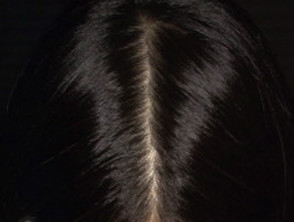Hair loss - DermNet NZ Can Be Fun For Anyone

The Buzz on Hereditary hair loss - Health Navigator NZ
Deal with dietary shortages Telogen effluvium Reduce alcoholic Avoid smoking cigarettes Diet Medication: Rogaine (Minoxidil) Prevent brushing wet hair De-stress Biotin: Biotin, also called vitamin H Hydration Avoid constant heating and drying Frequent hair coloring Sweat-free scalp Avoid traction alopecia Routine physical activity such as walking and swimming Treat itchy scalp on time Overactive thyroid gland or hypoactive thyroid gland are both known to trigger hair loss. Increased sugars may increase the danger of folliculitis Alopecia triggering medications Regular massaging of the scalp may increase blood circulation in the scalps and help you to relax and enhance scalp health.

Traction alopecia: Everyday things you do that can cause hair loss - National - Globalnews.ca
Since there are numerous types of hair loss, finding the cause can be challenging. This evaluation will cover the most common reasons for hair loss happening on typical unscarred scalp skin. The medical term for loss of hair is alopecia. Many loss of hair is not related to systemic or internal illness, nor is bad diet a frequent aspect. Hair might merely thin as a result of fixed genetic aspects and the overall aging process. This Article Is More In-Depth of males and females may discover moderate physiologic thinning of hair starting in their 30s and 40s. Life turnarounds, including disease, psychological trauma, protein deprivation (throughout stringent dieting), and hormonal changes like those in pregnancy, adolescence, and menopause may cause loss of hair.
While thyroid blood tests and other lab tests, consisting of a complete blood count (CBC), on people who have normal hair loss are normally typical, it is essential to leave out treatable causes of loss of hair.

10 Things You Didn't Know About Alopecia - Prevention

What Causes COVID-Related Hair Loss? – NBC Boston
What Does Hair Loss - Michigan Medicine Do?
A family doctor, internist, or gynecologist can perform a fundamental health screening. Skin doctors are doctors who concentrate on problems of skin, hair, and nails and might supply advanced medical diagnosis and treatment of hair thinning and loss. Often a scalp biopsy might be required. Although lots of medications list "loss of hair" among their possible adverse effects, a lot of drugs are not likely to cause hair loss. On the other hand, cancer treatment (for example, chemotherapy or radiation treatment) and immunosuppressive medications commonly produce hair loss. Complete hair loss after chemotherapy typically regrows after six to 12 months.
